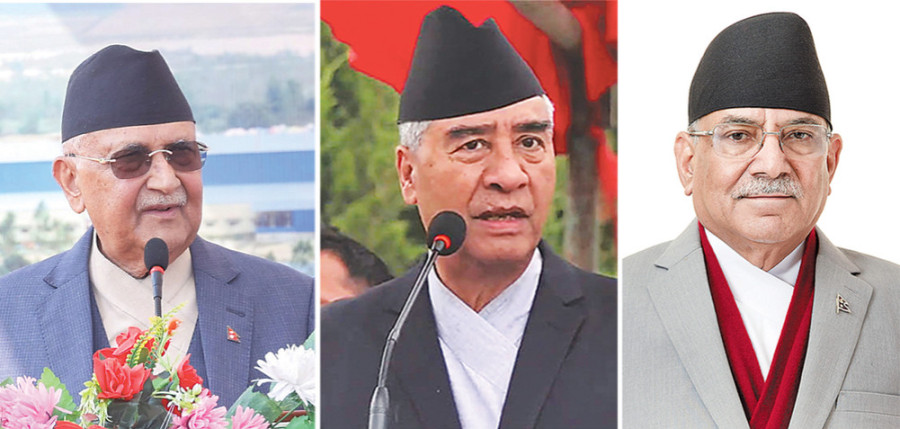Editorial
What are you waiting for?
Lack of internal opposition to leaderships of the three major parties is disheartening.
Again, there was no mistaking one of the central messages of the Gen Z revolution. They said, in no uncertain terms, that the days of the three old leaders taking turns to become prime minister were gone. This demand of the Gen Z protesters captured the country’s overall mood. More than anything else, it was the single-minded pursuit of power of the leaders of the Nepali Congress, the CPN-UML and the CPN (Maoist Centre) that had contributed to people’s frustration with the political class. Yet Sher Bahadur Deuba, KP Sharma Oli and Pushpa Kamal Dahal all want to shamelessly cling to their party leadership. In the case of the Congress, the general secretary duo of Gagan Thapa and Bishwo Prakash Sharma are in favour of radically changing their party in line with the demands of the Gen Z protesters, which, above all, means Deuba’s departure. Yet other senior Congress leaders are livid at this attempt to unseat Deuba—at a time the ‘party’s guardian’ ails. There are no signs yet that the UML is even considering replacing Oli, someone who is now accused of having a direct part in the deaths of 74 people during the Gen Z protests.
In the Maoist Centre, a special convention has been called to pick a new leader. But given Dahal’s absolute grip on party machinery, he is sure to win again. In the case of all three parties, the vast majority of the rank and file does not want to challenge the old establishment’s grip. The UML has been the most timid, with no acknowledgement in the party of the enormity of the change brought about by the Gen Z protests, and seemingly no reckoning for Oli, who was the prime minister during the bloody crackdown. Dahal, for his part, wants to come back under the veneer of democratic process.
There can be no ifs and buts about this. If these three parties want to stay relevant, they must start with a change in their leadership. With the same discredited leaders at the helm, with what moral authority will they go to the polls and ask for peoples’ votes? But this is not just a question of three leaders; it is a matter of life and death for the political parties themselves. If they don’t take drastic steps to improve their sullied images, they could very well be trounced in future polls. The country needs political parties with nationwide presence to strongly articulate issues of national importance. Their sizable presence in the legislature will also be vital to check the rise of regressive and authoritarian forces. This is why more leaders in these parties should be campaigning to remove the three leaders. These are no ordinary times, and there is no time to wait and endlessly deliberate future party leadership. This is why they must quickly pick new leaders, which will be the first big step to prepare for general elections. That will be in their own interest. It will also be in the country’s interest.




 18.12°C Kathmandu
18.12°C Kathmandu














